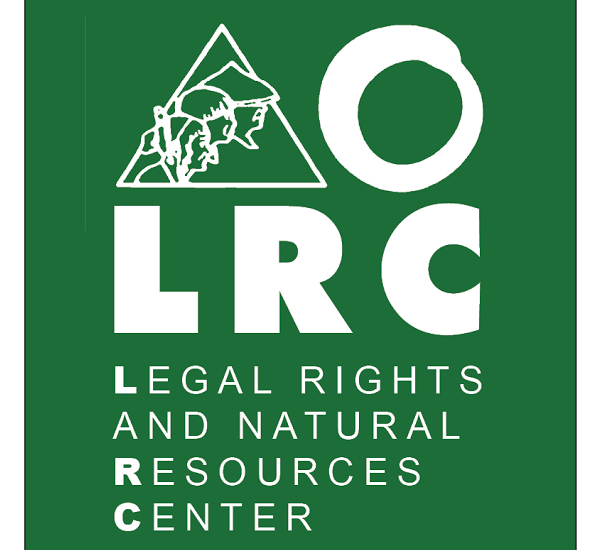Project
Mitigating the Minoritization of non-Moro Indigenous Peoples in the Bangsamoro by Harnessing an Enabling Policy Environment for Indigenous Peoples’ Rights
-
Amount Funded
85,109 EUROProject Duration
15 May 2021 - 30 Jun 2024 -
-
Lead organisation
-
The Legal Rights Resource Center (LRC) is a Philippine environmental organisation which started in 1988. The organisation is also called Friends of the Earth Philippines, and is an active member of Friends of the Earth International. LRC tries to protect the land rights of indigenous peoples in the Philippines, through legal aid to local groups claiming their rights on land and on their immediate surroundings. Every year LRC works directly with around 25 local organisations, especially in Mindanao and Luzon where it has also set up local branches. LRC’s headquarters are in Manila.
-
Organisation
The Legal Rights Resource Center (LRC) is a Philippine environmental organisation which started in 1988. The organisation is also called Friends of the Earth Philippines, and is an active member of Friends of the Earth International. LRC tries to protect the land rights of indigenous peoples in the Philippines, through legal aid to local groups claiming their rights on land and on their immediate surroundings. Every year LRC works directly with around 25 local organisations, especially in Mindanao and Luzon where it has also set up local branches. LRC’s headquarters are in Manila.
-
Project
Indigenous peoples’ political participation in state apparatuses has been uneven. In southern Philippines, home to majority of the country’s indigenous peoples, their participation in Bangsamoro Autonomous Region of Muslim Mindanao (BARMM) is critical lest they become a minority within a minority. As Moros pursue their autonomy in Central Mindanao, non-Moro Indigenous Peoples (NMIPs), particularly the Teduray, Lambangian, and Erumanen ne Menuvu, are in danger of becoming marginalised within overlapping territories of the two people.
The project aims to:
1) Support the mobility of Teduray, Lambangian, and Erumanen ne Menuvu peoples as they engage institutions (Congress, the Bangsamoro Parliament) and the Bangsamoro Transition Authority) and influence policies towards the promotion of their tenurial rights and autonomy; and
2) Help shape, through creative platforms, public discourse on the marginalization and mobility of indigenous peoples in that context as well as nationally.
-
-
Indigenous peoples’ political participation in state apparatuses has been uneven. In southern Philippines, home to majority of the country’s indigenous peoples, their participation in Bangsamoro Autonomous Region of Muslim Mindanao (BARMM) is critical lest they become a minority within a minority. As Moros pursue their autonomy in Central Mindanao, non-Moro Indigenous Peoples (NMIPs), particularly the Teduray, Lambangian, and Erumanen ne Menuvu, are in danger of becoming marginalised within overlapping territories of the two people.
The project aims to:
1) Support the mobility of Teduray, Lambangian, and Erumanen ne Menuvu peoples as they engage institutions (Congress, the Bangsamoro Parliament) and the Bangsamoro Transition Authority) and influence policies towards the promotion of their tenurial rights and autonomy; and
2) Help shape, through creative platforms, public discourse on the marginalization and mobility of indigenous peoples in that context as well as nationally. -
The Non-Moro Indigenous Peoples Assert their Place in the Bangsamoro
Timuay Justice and Governance & Legal Rights and Natural Resources Center
Together with the Loyukan network of Indigenous groups and civil-society organizations, Timuay Justice and Governance and Legal Rights and Natural Resources Center have long pursued the fight for the “full inclusion of Non-Moro Indigenous peoples (NMIPs) rights in the Bangsamoro Autonomous Region in Muslim Mindanao (BARMM).” Now that the new autonomous law was passed in 2019, the struggle continues as new challenges emerge with the creation of the new Bangsamoro government. Our project supported by Voice envisions to enable political participation of the NMIPs in the Bangsamoro region.
The autonomy of Moro peoples has been an aspiration to correct historical grievances. Now that that correction for them is within reach with the passage of Bangsamoro Organic Law (BOL), it is feared that the transition may cause to exclude the rights and interests of the NMIPs whose own project of self-determination has also been a struggle. This is seen as a likely effect given the apparent silence on NMIP agenda in the legislative efforts of the Bangsamoro government.
Enabling policy environment
- Monitoring development in the (NM)IP Code
- Local information dissemination on (NM)IP Code
- Multi-stakeholder dialogues to address local and regional issues of NMIPs
- Inter-generational storytelling
Overcoming challenges
- Shrinking civic space
- Lack of NMIP champions
- Grassroots formation
Assertion continues
- It does not stop with passing legislations
- Organizing is crucial
- Inter-IP solidarity



